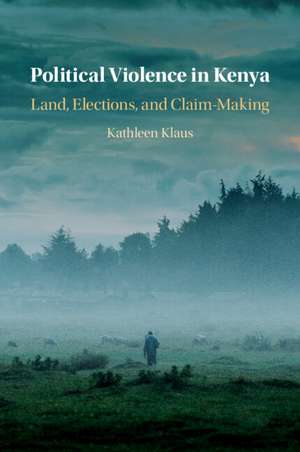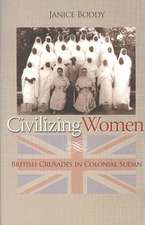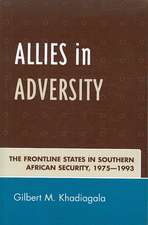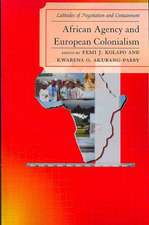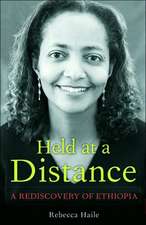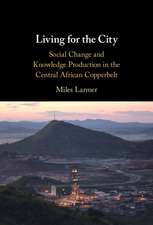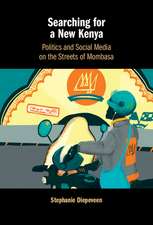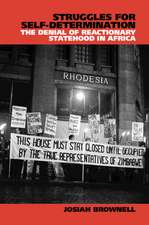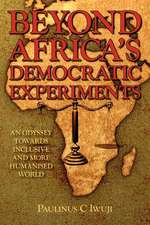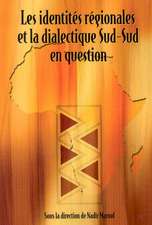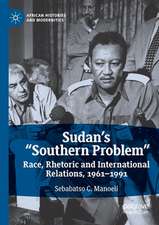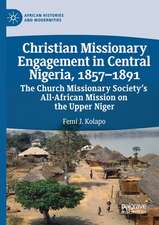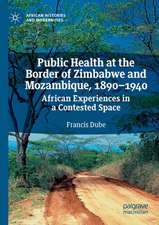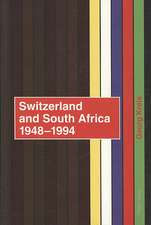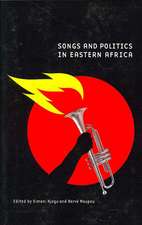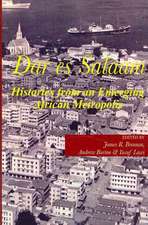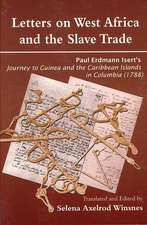Political Violence in Kenya: Land, Elections, and Claim-Making
Autor Kathleen Klausen Limba Engleză Paperback – 29 iun 2022
| Toate formatele și edițiile | Preț | Express |
|---|---|---|
| Paperback (1) | 308.60 lei 6-8 săpt. | |
| Cambridge University Press – 29 iun 2022 | 308.60 lei 6-8 săpt. | |
| Hardback (1) | 755.87 lei 3-5 săpt. | |
| Cambridge University Press – 27 mai 2020 | 755.87 lei 3-5 săpt. |
Preț: 308.60 lei
Nou
Puncte Express: 463
Preț estimativ în valută:
59.05€ • 61.82$ • 48.86£
59.05€ • 61.82$ • 48.86£
Carte tipărită la comandă
Livrare economică 07-21 aprilie
Preluare comenzi: 021 569.72.76
Specificații
ISBN-13: 9781108726467
ISBN-10: 1108726461
Pagini: 373
Ilustrații: 8 b/w illus. 20 tables
Dimensiuni: 152 x 229 x 20 mm
Greutate: 0.5 kg
Editura: Cambridge University Press
Colecția Cambridge University Press
Locul publicării:Cambridge, United Kingdom
ISBN-10: 1108726461
Pagini: 373
Ilustrații: 8 b/w illus. 20 tables
Dimensiuni: 152 x 229 x 20 mm
Greutate: 0.5 kg
Editura: Cambridge University Press
Colecția Cambridge University Press
Locul publicării:Cambridge, United Kingdom
Cuprins
1. Introduction; Part I. Determinants of Contentious Land Narratives: 2. A theory of land and electoral violence; 3 Historical origins of electoral violence; 4. Land inequality and land narratives: theory and evidence; 5. Narrative formation in the Central Rift Valley; Part II. Determinants of Election Violence: 6. Contentious land narratives and the escalation of violence; 7. A puzzle of non-escalation? Contentious land narratives and stability on Kenya's coast; Part III. Consequences of Electoral Violence: 8. Individual-level causes and effects of election violence; 9. Conclusion.
Recenzii
'This book provides a powerful analysis of collective land narratives, and connects these narratives to elite and citizen coordination of electoral violence. This insightful and compelling research connects institutional factors that shape land access and security to the construction of narratives, which ultimately reflects on the relationship between democratization, political violence, and post-conflict politics.' Rachel Beatty Riedl, Cornell University, New York
'Why do elections turn violent in some local contexts but not in others? Based on comparisons of communities, interviews, and a novel survey in Kenya, Klaus finds that it is the interplay of contentious land narratives, land inequality and politicians acting as land patrons that allows elites to mobilize citizens for violence – and citizens to follow. With its thorough argument and rich empirical approach, Klaus takes us to a new level of understanding of a phenomenon that plagues democracies around the world.' Ana Arjona, Northwestern University, Illinois
'Klaus tackles a question central to the success of fragile democracies – when will ordinary people use violence during and after elections? Land, as the resource that most shapes identity and economic well-being, is central to her argument. Klaus's multifaceted empirical strategy is impressive. Her extensive qualitative evidence yields unique insights into how people understand land inequality and the process by which conflict escalates. A remarkable contribution to our understanding of electoral violence.' Kimuli Kasara, Columbia University, New York
'Why do elections turn violent in some local contexts but not in others? Based on comparisons of communities, interviews, and a novel survey in Kenya, Klaus finds that it is the interplay of contentious land narratives, land inequality and politicians acting as land patrons that allows elites to mobilize citizens for violence – and citizens to follow. With its thorough argument and rich empirical approach, Klaus takes us to a new level of understanding of a phenomenon that plagues democracies around the world.' Ana Arjona, Northwestern University, Illinois
'Klaus tackles a question central to the success of fragile democracies – when will ordinary people use violence during and after elections? Land, as the resource that most shapes identity and economic well-being, is central to her argument. Klaus's multifaceted empirical strategy is impressive. Her extensive qualitative evidence yields unique insights into how people understand land inequality and the process by which conflict escalates. A remarkable contribution to our understanding of electoral violence.' Kimuli Kasara, Columbia University, New York
Notă biografică
Descriere
An analysis of land and natural resource conflict as a source of political violence, focusing on election violence in Kenya.
